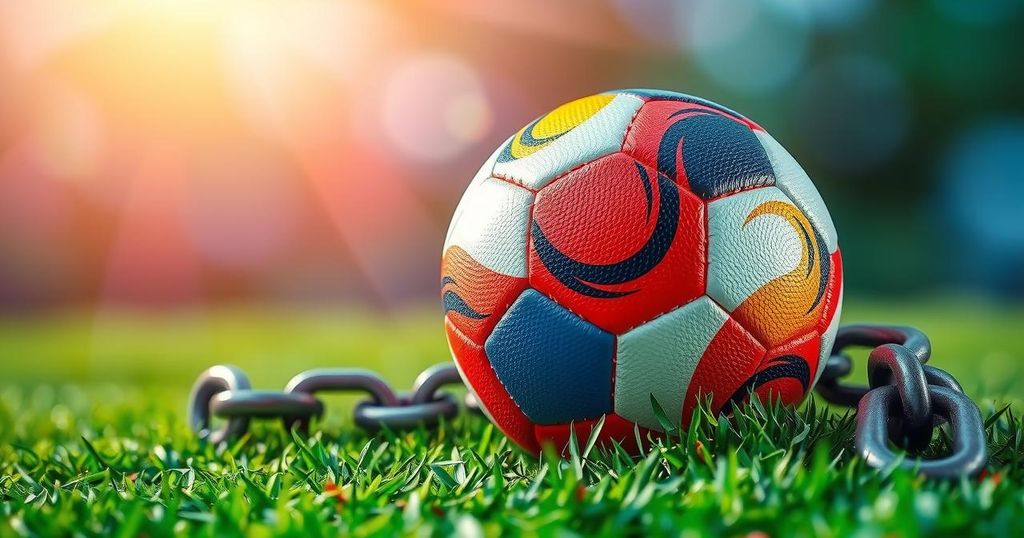FIFA Urged to Support Afghan Women’s Football Team in Exile
The Sport & Rights Alliance urges FIFA to address discrimination against Afghan women footballers in exile. The women’s team has been excluded from competition since the Taliban’s takeover. Key figures recommend FIFA recognize the team and provide support, emphasizing the importance of women’s rights in sports, reflected in public support and advocacy.
The Sport & Rights Alliance has called on FIFA to address ongoing discrimination against Afghan women footballers in exile, as detailed in their latest report. The report highlights that the Afghanistan Women’s National Football Team (AWNT) will be absent from the upcoming 2026 AFC Women’s Asian Cup Qualifiers due to the Taliban’s takeover, which has led to the exclusion of the team from international competition since 2021.
Samira Hamidi from Amnesty International emphasized that despite the team’s escape from the Taliban, they continue to face systematic gender discrimination. She stated, “the Taliban’s gender persecution” should be investigated as a crime against humanity. The Sport & Rights Alliance report underscores the significance of the team, which is viewed as a beacon of female empowerment in post-Taliban Afghanistan, and reveals that many evacuated players are eager to compete internationally.
Khalida Popal, the founder of the AWNT, remarked, “Right now, the game is at halftime, and the Taliban think they are winning.” She urged FIFA to change its regulations, which currently require recognition from the Taliban-affiliated Afghanistan Football Federation, a body refusing to acknowledge women’s sports.
FIFA has indicated a plan to facilitate opportunities for Afghan women footballers but has not confirmed any recognition of the AWNT. Joanna Maranhão from the Sport & Rights Alliance highlighted the incredible resilience of these women and the importance of reintegrating them into competitive football.
FIFA’s statutes prohibit discrimination and mandate support for women’s football, suggesting possible sanctions for non-compliance by member associations. Andrea Florence, the executive director of the Sport & Rights Alliance, stated that FIFA’s intervention is crucial for the AWNT’s future, urging official recognition and funding similar to that provided to other associations.
The plight of the Afghan women’s team has attracted international attention, including support from Nobel laureate Malala Yousafzai and a Change.org petition signed by nearly 200,000 people. Fereshta Abbasi from Human Rights Watch emphasized that football represents a vital form of resistance against the Taliban for these athletes. Additionally, the IOC’s recognition of an Afghan committee for the 2024 Paris Olympics illustrates potential pathways for supporting women athletes from Afghanistan despite Taliban restrictions, with calls for broader international action from sports bodies.
In conclusion, the Sport & Rights Alliance report underscores the urgent need for FIFA to recognize and support the Afghanistan Women’s National Football Team in exile. With calls for an end to gender discrimination and a push for equality in international sports, it is imperative that FIFA takes decisive action to restore opportunities for these women. Their fight symbolizes broader struggles for women’s rights, making FIFA’s intervention not only a sports issue but also a significant human rights concern.
Original Source: www.amnesty.org








Post Comment